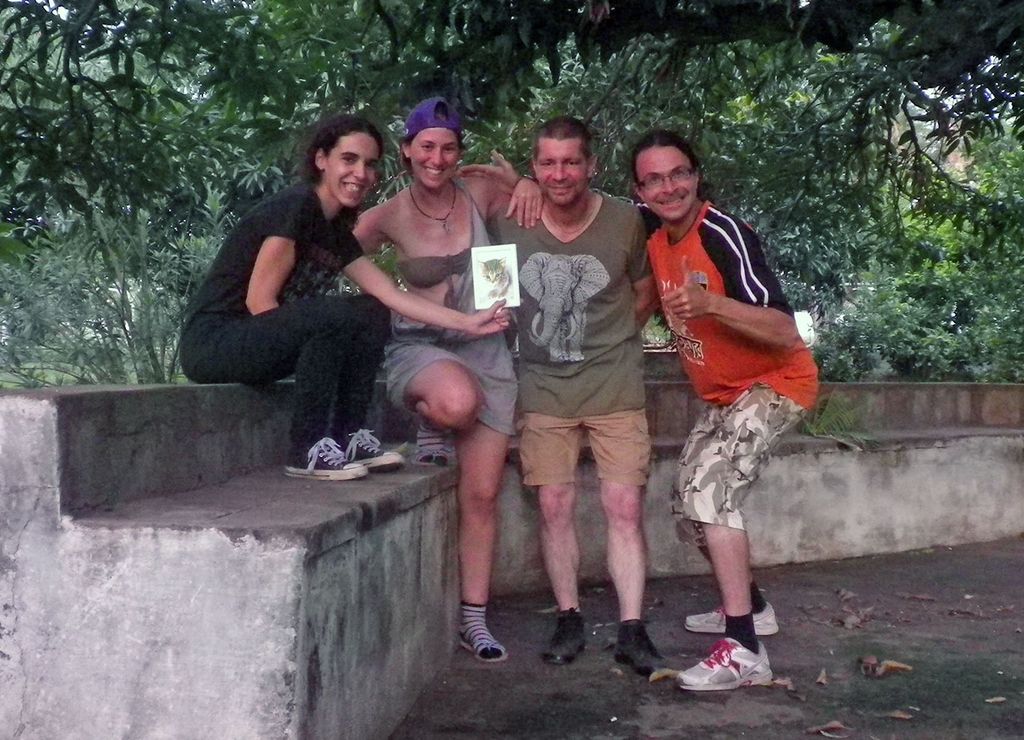EXPERIENCE IN MOROCCO from Milagros, August team 2017
We are all an important part of the world in which we live and the society, culture and country to which we belong. The hazards of destiny mark in some way the paths we take throughout our lives.
Luckily or unfortunately, we should debate it, I was lucky to develop my life in one of the countries considered the first world; which does not mean that it ignores the needs and problems of the less developed countries that, to a greater or lesser extent, are the result of economic and political powers carried out by governments without thinking about benefiting the majority of their population but interested in having them submitted as machines to produce money and resources for their own benefit.
That is why I decided to take sides and contribute my bit in this network. So now I belong to the 12-months Poverty Activist programme as a volunteer in CICD, with the aim of going to Africa to help alleviate the consequences of these poorly managed policies.
Among the many opportunities we have within the programme, one of them was travelling to Morocco for a week. It was a journey of research and study about its history, politics, lifestyles, customs, women's rights, etc. of the Arab world, in general, and of the Berber population, in particular.
I have to say that it was an amazing journey and it was like going back in time and living in first person as life was in the countries considered first world not long ago.
Its people, full of kindness, hospitality, humility, generosity ... I lack words to describe it, is the most important part of this trip. On the other hand, I was struck by a part of its economy as the stalls selling everything imaginable: clothes, live animals, gifts, food, woollen objects, leather, brass, silver, candles, paintings .. .
With this, we value the number of people who can contribute to family support with their little jobs, with the handicraft work of wool, leather, brass, which from these raw materials they transform into elements of daily use. That reminded me and saddened me thinking about the number of posts of work lost because of the industry and its machinery in the industrialised capitalist countries.
Another point that caught my attention was the use, still, of the donkey as a means of transport to move people, to carry objects from one place to another, to transport food, such as olives after harvesting; how to prepare their meals and how they organize to eat from the same dish, sharing that food with others if necessary ...
But there is a detail that really surprised me: they do not use toilet paper in the bathrooms.
In the end, all these details are what give meaning to life, a life more in contact with nature itself, a true relationship between the components of the community to which they belong, very different from the one we live in a large city, where we do not even know the neighbour who lives next to us.
With all this, what I want to emphasize is that, to enter the world of volunteering, to be able to live, feel, smell, share, collaborate and spend a period of our lives with people who do not live in a "welfare state" like ours. It is well worth it, as a life experience, as personal growth, to become aware that we are all part of the same world and with our contribution we can achieve a better world if we propose it.







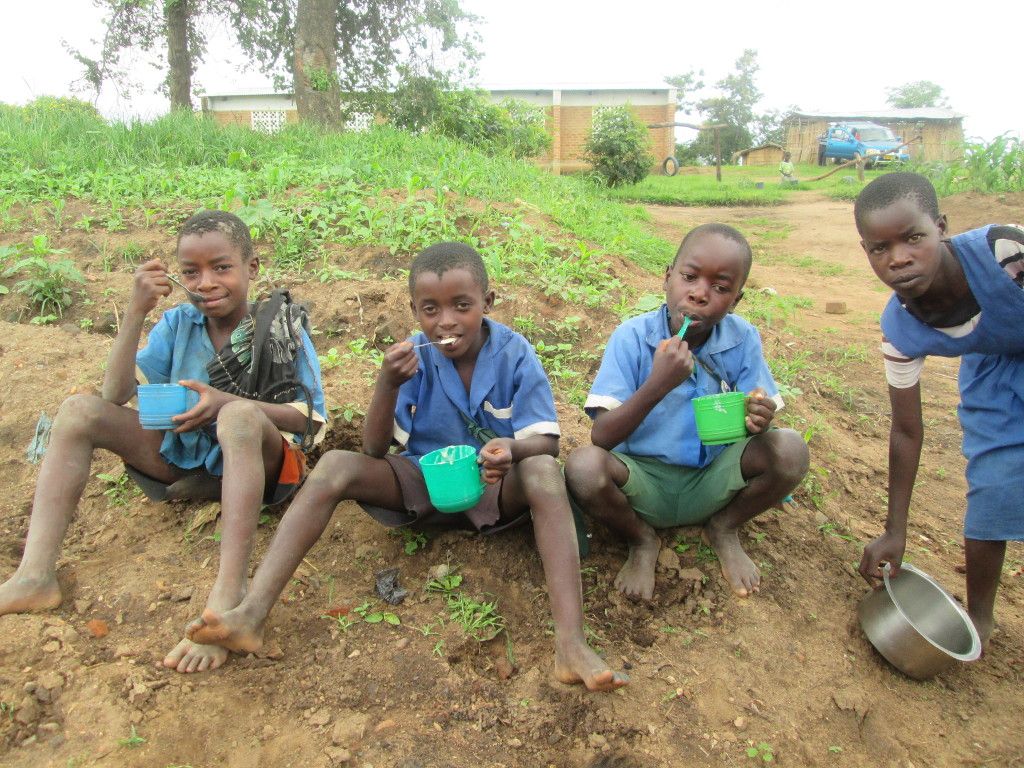
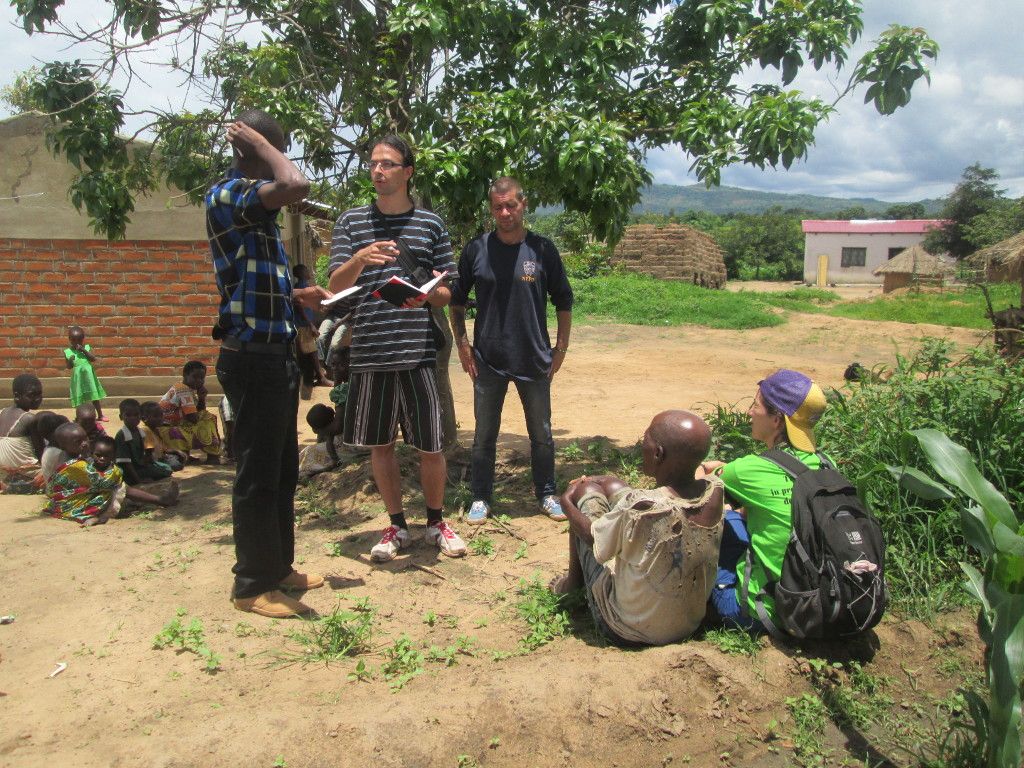
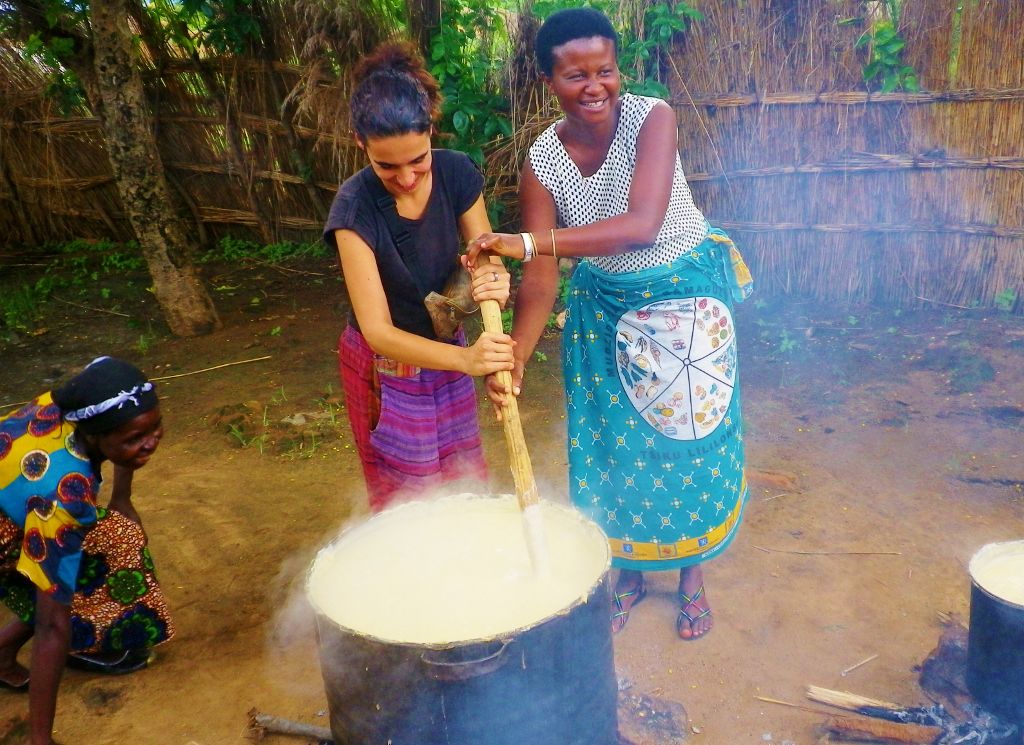
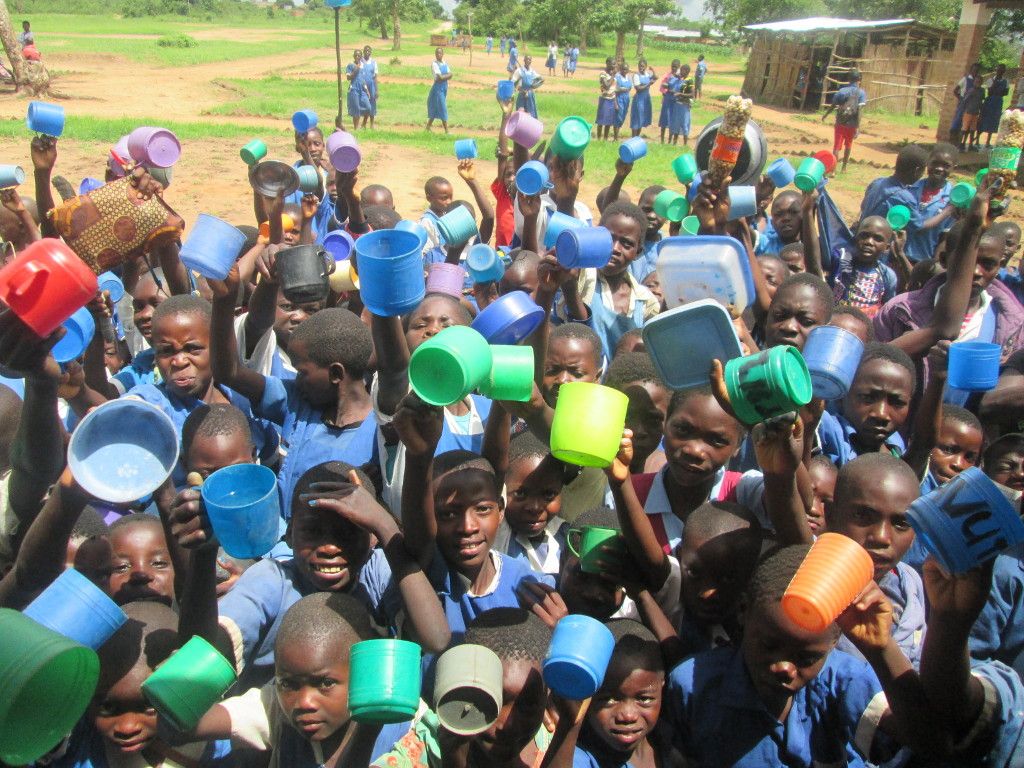
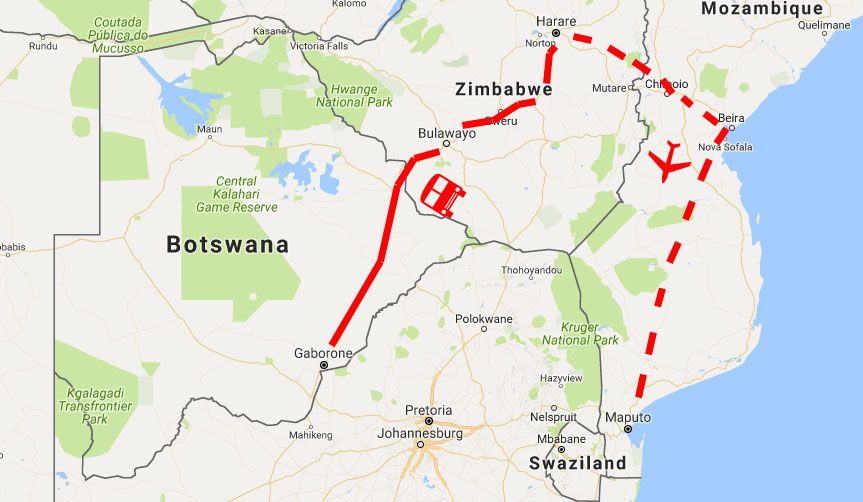
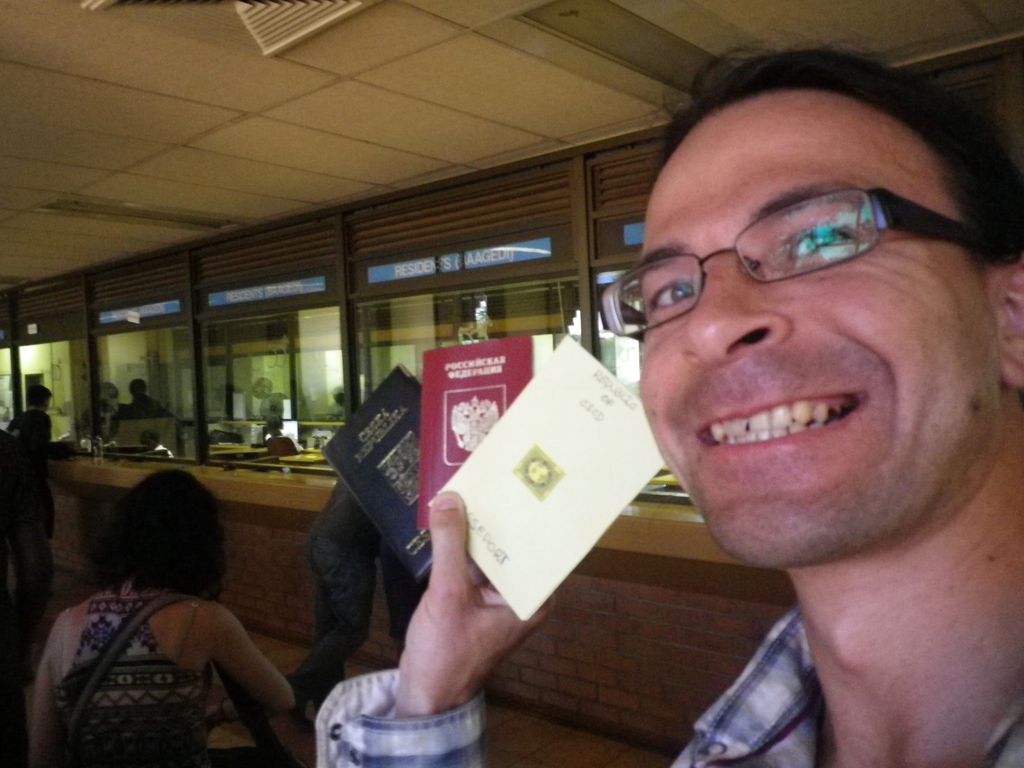 The Namibian border officer wondered about the idea for a while, but – because of the late hour – didn't want to bother himself too much and let me through.
The Namibian border officer wondered about the idea for a while, but – because of the late hour – didn't want to bother himself too much and let me through.